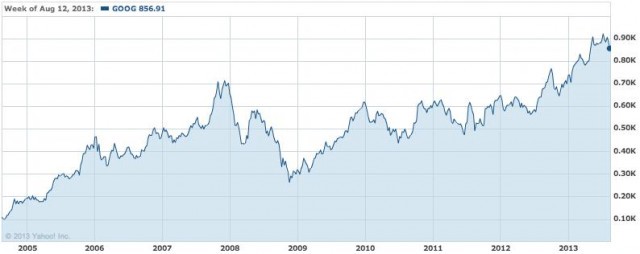Here's One For The Old Dudes
The Replacements reunion tour kicked off in Toronto last night. I’m a little upset with myself for having reached the age where I no longer have strong feelings on whether or not they should have reunited. You get to a point where nothing really matters anymore, and after that you are basically just counting down the moments until death decides the time has come for her to beckon her bony finger at you and the whole thing comes to its merciful conclusion. Anyway, there are more videos here.
Space Splotchy

It turns out space looks exactly like what that hippie artist was spraypainting on black velvet outside the Dead show at the Silver Bowl in 1991. [Photo: Adam Block/Mount Lemmon SkyCenter/University of Arizona, via]
Woman Assesses Her Brand
“I call my brand ‘funcomfortable.’” says an actual woman with actual achievements, about herself and her work.
The Next Google: It's Like Google, But For Search

It is no longer appropriate for search to be under the thumb of private industry. It’s a critical part of the national infrastructure. So if I were a real pinko, I’d be advocating for the nationalization of Google, à la Chavez — but I’m not a real pinko. Besides, the American people have already bought and paid for an ideal alternative to Google. That’s right: we have the means in hand to create a public, ad-free, totally fair and reasonably transparent search engine with a legal mandate to operate in the public interest, and most of the work is already done. We have also a huge staff of engineers to conclude what little remains on the development and deployment side.
Who are these American heroes, soon to be accepting the thanks of a grateful nation? Why, our fellow citizens, the software engineers and tech gurus and endless numbers of contractors of the NSA! Why don’t they make themselves useful and stop spying on everyone and instead, use all that computing power and archived information to make us a fair, fast, ad-free search engine?
They have a copy of the whole Internet, soon to be housed in their giant bunker in Utah!
It is already, apparently, equipped with the latest in search technology! It’s probably already better than Google.

Others make their case against Google on antitrust laws. It’s not illegal to have a monopoly. According to U.S. courts, it’s just not your fault that everybody loves your product! What’s illegal is using that power to do bad things, like suppress your own competition. This is why there are ongoing government investigations into Google’s anti-competitive business practices in the U.S., in Canada and in Europe.
Probes like these have so far tended to focus on Google’s preferential treatment of its own services over those of its competitors in Google search results. Which amounts to ignoring the elephant in the room: Google, with its 67% share of U.S. search traffic (sounds low, tbh), has a potential influence far beyond the industries in which it operates formally. At the moment, Google can legally use its power to make or break any business, or any politician, publication, or public figure it chooses, for any old reason it wants, provided that reason doesn’t fall foul of antitrust laws.
For instance, let’s suppose one of Google co-founder Sergey Brin’s friends were to open a new cafe in Mountain View: there is no legal proscription whatsoever against Google’s vaulting the Friends o’ Brin Cafe to the top of results on searches for “best cafe Mountain View.” Or even “best cafe.”
A close reading of Google’s ten “Core Principles” appears to suggest, but not quite guarantee, that Google won’t simply grant preferential treatment at its own discretion. The fact is, however, that it’s entirely up to them. Given the understandably secret nature of Google’s algorithms and other techniques for determining search results, it would be impossible to say whether or not this is in fact already happening.
Already companies live or die at the hands of Google. Any update to the Google Panda search ranking algorithm has rippling effects through the Internet. One thing that seems to be the case: older sites, with thousands of internal links and a deep history on the Internet, seem to be constantly downgraded. That’s bad news for some non-spam media companies that in part live off search traffic. Google results, in general, overweight newness. It is becoming more and more impossible to find relevant results older than three months.
As well, Google will tell you that active engagement with their product Google+ will be “beneficial” to any publisher as a whole, including in search. Publishers now ignore Google+ at their peril, whether it is relevant to their business or not.


But let’s take the real case of 23andMe.com, the “privately-held personal genetics company” whose CEO, Anne Wojcicki, is married to Sergey Brin. According to recent SEC filings, Google invested approximately $1.5 million in the company’s Series D round, and Google leases office space to the company. Here’s the current results for a search on the phrase “genetic testing”:

23andMe is the first paid result; the first result appearing below Wikipedia and the National Institute of Health is also 23andMe. If Ms. Wojcicki has privileged access to the inside scoop on how Google’s search rankings work (if!), or if Google merely wants to shoot her company’s links to the top of relevant searches, would that even contravene existing anti-trust laws?
Nope, according to James Grimmelmann, Professor of Law and Director of the Intellectual Property Program at the University of Maryland:
There is not any obvious law that this kind of favoritism would violate. It does favor one genetic testing company at the expense of another, but you’re right that this doesn’t directly suppress competition among search engines. I have seen arguments that this kind of favoritism is an antitrust issue, but the lack of direct injury to a competitor, and fact that Google is not itself competing in genetic testing, make that argument extremely tenuous. The argument is stronger for something like maps or social networking features, but there, Google can point to the obvious benefits to consumers of having a single integrated set of results.
In this article draft, I give a detailed analysis of whether one of the other testing companies could sue on the theory that Google is falsely claiming that it’s less relevant than 23andme. That’s a hard, though not completely impossible, case to make because the meaning of “relevant” is deeply ambiguous.
The final possibility would be an enforcement action by the FTC for deceiving consumers. If 23andme were owned by Google, a disclaimer would probably suffice to satisfy the FTC. It’s a little different where the connection is more attenuated. But because they’re primarily policing for hidden marketing, a clear disclosure of the relationship would be likely to satisfy them.
The potential for shenanigans is also problematic in view of Google’s cozy relationships with its VCs who, being invested in businesses other than Google, are liable to have a strong incentive to throw their weight around in Google’s search results. As matters stand right now, it would be perfectly legal for them to do so, and nearly impossible to detect.
A number of Google’s liabilities with respect to fairness are ably illustrated in “Can Google Be Trusted?,” a grimly amusing little slideshow from FairSearch.org, a group of businesses and organizations “fostering and defending competition in online and mobile search.” (Hilariously, the group counts the much-sued monopolist Microsoft among its members.)
I asked Brewster Kahle of the Internet Archive and the Wayback Machine some questions on this.
Would it be illegal for Google to disfavor competitors in their search results? Are they required to be impartial and if so, by what laws? What about blacklisting in search results for other reasons?
Maybe antitrust like they are getting hit for in Europe.
What do you think about the secret nature of the algorithm Google uses to produce the results? What do you think about the SEO world, these days?
It is not great. That company is becoming both the navigation and the publisher, which will make for conflicts of interest.
It would be great to let a hundred Googles bloom — but it is difficult to match them in search. They are on a roll.

But we don’t need a hundred Googles. Just one free, fair, intelligent and comprehensive one. All we need to do is permanently erase all the emails, phone calls and private correspondence illegally obtained by the NSA and then make their search technology and WWW archive available to the rest of us. We already own the information and the software and are paying the salaries of these engineers. It’s been entirely funded, after all, with insanity-making amounts of your tax dollars.
Maria Bustillos is a journalist and critic in Los Angeles.
Your Personality Disorder Is A Lot Less Cool Than You Think It Is
Hey, guess what, you’re not an introvert, you’re just a self-obsessed jerk. I mean, I personally am still an introvert, but I’m a little more sensitive to the crushing intensities of life than most of us, including you, are.
What Was Brooklyn? A Deeper Look At The Corcoran Tumblr

We generally leave our daily trolling of the Corcoran “10 a.m. special” Tumblr to our own Tumblr but this is special. Today’s Corcoran “special” is a $1.05 million two-bedroom apartment in downtown Brooklyn, at a little over 1000 square feet, which, that’s not okay already. But what’s this bit of staging??? LET’S ZOOM IN TOGETHER.

Spanish lesson. Coffee. Smile. Weekends. Theatre. Travel. Never Look Back. And a few intriguing illegibles. Maybe Frank O’Hara is still alive — and brokering real estate.
Someone needs to hold Brooklyn’s face in a bucket of water until it vomits and drowns.
What Did The Times 'Fuck,' And When Did It 'Fuck' It?
Can this really be the first time the Times has used the word “fuck”? It seems unlikely.
It's Also Ola Ray's Birthday, By The Way
We generally restrict our acknowledgment of birthdays in this space to those which end with zeros or reveal that a person is now eligible for Social Security, but some days — particularly slow ones during the last week of summer when even lifting the receiver seems like too much effort for phoning in purposes — we take whatever we can get, and today’s 64th turning of the world upon the man known as Leon Redbone will just have to do. I wanted to find a decent video of “Champagne Charlie” but it seems to be in short supply, but then I belatedly recalled that he was the voice behind the theme song to “Mr. Belvedere” (written by Gary Portnoy and Judy Hart Angelo, who also did the “Cheers” theme song, which makes them first ballot Hall of Famers in the TV Theme Show Writers Hall of Fame) and that is going to be good enough for now.
Berlusconi: Why?
“The success of Berlusconi is thus not a blip or an anomaly, but goes to the heart of Italian culture, and reveals the widespread disbelief in Italy that politics could ever be cleaned up or made remotely fair. So Berlusconi’s insistence that the criminal charges against him are merely trumped up by his enemies finds fertile territory; even those who oppose him are willing to assume that an element of persecution is involved, as if what mattered were not his guilt but the spirit in which the investigation is carried out, since every politician is presumed guilty one way or another and it’s common credence that no action on any side of the political spectrum is ever genuinely undertaken with the public interest at heart. Many people are actually rather comfortable with this state of affairs insofar as it justifies their own small misdemeanors and tax evasions. Hence, if the judiciary prevails and Berlusconi is excluded from political life, millions of Italians will see this not as the affirmation of a rule of law (something that might make life more challenging for everybody), but simply as one battle won by the other side. In short, the polarities good/evil, moral/immoral, or even effective/ineffective around which we suppose that politicians should be assessed and judged are always subordinate in Italy to the overriding question of winning or losing, which is absolutely the only thing that matters.”
— Tim Parks’ “Italy Held Hostage,” is both brief and great and answers the vexing Berlusconi question as best as any explanation can.
Pearl Jam, "Mind Your Manners"
Remember when Pearl Jam was all, “Screw you, The Man, we’re not playing your game anymore,” and stopped making videos and doing Ticketmaster tours and partying at the MTV Beach House? You can be forgiven for forgetting, since it was a couple decades ago, but anyway there is still a Pearl Jam and they still make records and they even occasionally put out a music video every now and again, this one here being the most recent example. Enjoy. [Via]
